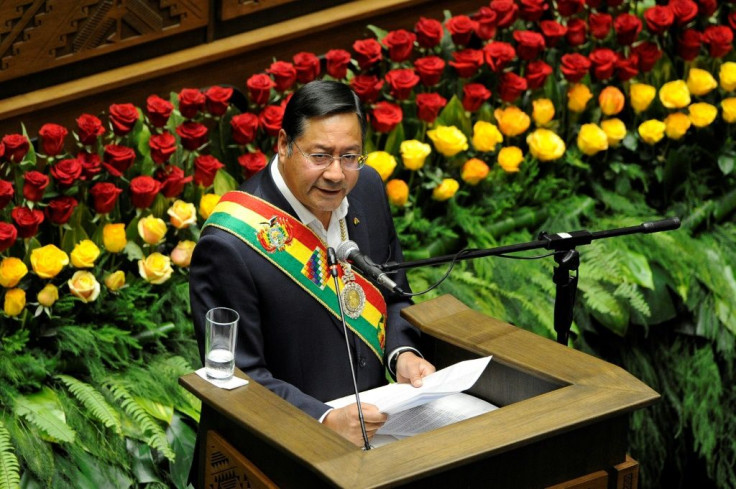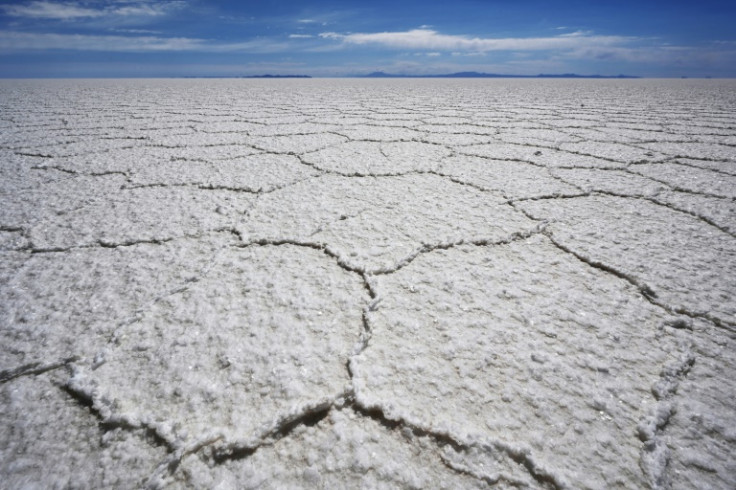
Former Bolivian President Evo Morales has been disqualified from the country's 2025 presidential election after a ruling Friday evening by the constitutional court nullified the legality of indefinite presidential reelection.
Morales served three consecutive terms between 2006 and 2019 before being controversially removed from power and exiled following allegations of voter fraud in the October 2019 election. After returning to Bolivia in 2021 he has since mounted a political comeback, challenging incumbent President Luis Arce for the 2025 candidacy of MAS (Movement to Socialism), the party Morales founded and led until his ouster.
Friday's ruling from the Constitutional Tribunal, Bolivia's highest judicial authority, overturned a 2017 decision that permitted Morales to seek a fourth term in the 2019 elections. Morales narrowly won in 2019 before the results of the election were annulled amid accusations of fraud; former finance minister Luis Arce (MAS) then defeated right-wing challenger Carlos Mesa by a 27-point margin in snap elections held in October 2020.
Morales has yet to file a challenge to the Constitutional Tribunal's ruling, but has publicly questioned the validity of the decision. "There was never a prohibition on discontinuous re-election...[the constitutional provision] refers to the re-election of presidents who are in power," he said on X/Twitter on Sunday. Morales then compared himself to Brazilian President Lula da Silva, who secured a third non-consecutive term in office in the country's 2022 elections.
Term limits offer "an ideal measure for ensuring that someone does not perpetuate themself in power," the Constitutional Tribunal said in a public statement released on Saturday.
President Arce has not yet commented on Morales' disqualification.
The surprise decision sheds light on the divide within Bolivia's governing party between supporters of Morales and Arce, and provides an opportunity for Bolivia's right-wing and centrist opposition to capitalize in the next election.
Bolivia's Commodity Boom On Pause
Bolivia's economic growth has stagnated relative to neighboring countries since 2020, as new investments in key sectors including natural gas and agriculture have proven hard to come by. President Arce's administration has been the source of international criticism for indefinitely detaining opposition political figures, namely ex-interim president Jeanine Áñez and regional governor Luis Fernando Camacho.
As foreign capital dries up, fears of recession have clouded investor confidence in Bolivia. A major commercial bank shuttered in May; the country's credit rating was downgraded to CCC+ by S&P in November. The central bank last released official data in August with $2.1 billion in net reserves, marking a 46% decline from the beginning of last year.

Political risk has also hampered development of Bolivia's lithium industry, often touted by political leaders as a source of future public funds. Despite possessing the world's highest confirmed reserves of the namesake mineral of lithium-ion batteries, Bolivian lithium production remains insignificant compared to neighboring Chile and Argentina, generating just 600 tons of battery-grade lithium from a single pilot project in 2022 (compared to more than 30,000 tons of production in Chile).
But the country has renewed hopes for capitalizing on the global lithium boom, as two major lithium contracts were signed in Bolivia in June 2023. A $1.4 billion investment project by Chinese battery giant CATL, as well as another matching $1.4 billion project by a consortium of Russian state-owned Rosatom and Chinese CITIC-Guoan Group, aim to collectively produce 100,000 tons per year of battery-grade lithium alongside Bolivia's state-owned YLB by the end of 2025 at Bolivia's massive Uyuni and Coipasa salt flats.
But lofty targets aside, there is no guarantee that the recently signed projects will translate into meaningful production in the near future, or at least not until the October 2025 presidential election destabilizes Bolivia's political climate. For reference, a similar lithium exploration contract with German firm ACISA was canceled by the Bolivian government in November 2019 amid intensifying local protest activity during the late 2019 political crisis.
Morales' disqualification from the upcoming 2025 election could prove advantageous to President Arce and the lithium contracts signed in 2023—provided Arce wins reelection 21 months from now. But these contracts would certainly be at risk of renegotiation if Morales' candidacy is rehabilitated and he defeats Arce, and would likely be outright nullified in favor of more business-friendly proposals from western companies in the event of a leftist defeat in 2025.
In the meantime, Morales will undoubtedly challenge his disqualification, whether through legal challenges or mobilizing protests from his sizable base of support in Bolivia's highland indigenous communities.
With political instability looming, the Chinese and Russian projects, as well as Bolivia's lithium industry at large, may have a limited window of opportunity to prove commercial viability.







